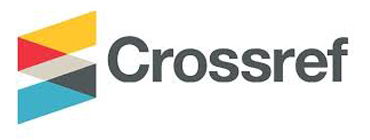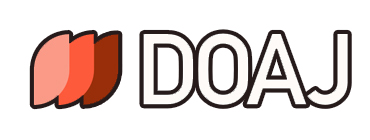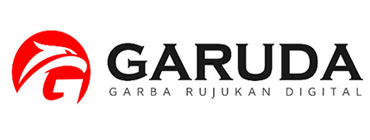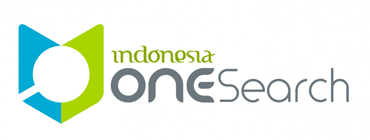ANALISIS PENERAPAN KURIKULUM MERDEKA DALAM MENINGKATKAN PEMBELAJARAN PENDIDIKAN AGAMA ISLAM (PAI)
Abstract
This research is motivated by the many phenomena regarding curriculum problems in Indonesia which are currently changing, but are not balanced by increasing changes in the world of education. The purpose of this study is to analyze the implementation of the Independent Curriculum in Islamic Religious Education learning at SMPN 6, South Tangerang City. The method used is descriptive qualitative research. Data collection techniques are carried out through observation, interview and documentation methods. Informants in this study were taken from people who understand the implementation of the Independent Curriculum such as: principals, curriculum representatives, Islamic Religious Education teachers, and class VII students. The data analysis technique in this study uses the Miles & Huberman data analysis technique, namely data collection, data presentation, reduction and conclusions. The findings in this study indicate that the implementation of the Independent Curriculum in Islamic Religious Education learning at SMPN 6, South Tangerang City shows an increase in creativity and love for the country for students even though there are obstacles and challenges. Teachers apply a structured approach with differentiated, project-based, and cooperative learning, as well as the use of varied learning models, such as Cooperative Learning and Project-Based Learning, supported by interactive teaching media. Meanwhile, the obstacles in its implementation are the large amount of time spent by teachers and students, and students feel burdened by the cost of making the project.
Full Text:
PDFReferences
Alaika M. Bagus Kurnia PS, D. (2020). Menyorot Kebijakan Merdeka Belajar. Pustaka Belajar,.
Ardiansyah, A., Al-Anshori, T., Zakaria, Z., & Cahyanto, B. (2022). Principles of Online Learning Assessment: A Literature Review Between Western Education Theory and Islamic Education Theory. Jurnal Pendidikan Agama Islam, 19(1), 13–28. https://doi.org/10.14421/jpai.2022.191-02
Catherine Garrison & Michael Ehringhaus. (2016). Formative and Summative Assessment in the Classroom. Theory into Practice, 55(2), 153–159. https://doi.org/10.1080/00405841.2016.1148989
Chairunisa, E. D., & Zamhari, A. (2022). Development E-modul of History Learning Strategy to Improve Student Digital Literacy. Criksetra: Jurnal Pendidikan Sejarah, 11(1), 84–96. https://ejournal.unsri.ac.id/index.php/criksetra/article/view/16047/6703
Cholilah, M., Tatuwo, A. G. P., Komariah, & Rosdiana, S. P. (2023). Pengembangan Kurikulum Merdeka Dalam Satuan Pendidikan Serta Implementasi Kurikulum Merdeka Pada Pembelajaran Abad 21. Sanskara Pendidikan dan Pengajaran, 1(02), 56–67. https://doi.org/10.58812/spp.v1i02.110
Emzir. (2012). Metodologi Penelitian Kualitatif Analisis data,. Rajawali Pers.
Farid Tri Febrian, Intan Putri Kamilah, R. M. T. R. G. et al. (2024). Pengaruh Fasilitas Sekolah terhadap Pemahaman dan Penerapan kurikulum Merdeka Oleh Guru. 4(3), 508–517. https://adisampublisher.org/index.php/edu/article/download/905/946/1795
Harwisaputra, A. F., Safitri, A. N. E., Utami, A. W., Sudarsih, A., & Ngadhimah, M. (2024). Strategi Penerapan Kurikulum Merdeka di SMAN 2 Ponorogo. Southeast Asian Journal of Islamic Education Management, 4(2), 149–164. https://doi.org/10.21154/sajiem.v4i2.206
Hasriadi, Siswanto, & Muktamar, A. (2023). Islamic Religious Education Curriculum Development Model. ETDC: Indonesian Journal of Research and Educational Review, 2(4), 55–69. https://doi.org/10.51574/ijrer.v2i4.936
Ismail, S. M., Rahul, D. R., Patra, I., & Rezvani, E. (2022). Formative vs. summative assessment: impacts on academic motivation, attitude toward learning, test anxiety, and self-regulation skill. Language Testing in Asia, 12(1). https://doi.org/10.1186/s40468-022-00191-4
Kemendikbudristek. (2021). Kurikulum Untuk Pemulihan Pembelajaran. Kajian Akademik, 130.
Khan, S. N. (2014). Qualitative research method - Phenomenology. Asian Social Science, 10(21), 298–310. https://doi.org/10.5539/ass.v10n21p298
Kholidah, L. N., Winaryo, I., & Inriyani, Y. (2022). Evaluasi Program Kegiatan P5 Kearifan Lokal Fase D di Sekolah Menengah Pertama. Edukatif : Jurnal Ilmu Pendidikan, 4(6), 7569–7577. https://doi.org/10.31004/edukatif.v4i6.4177
Kurniawan, I., Hamidani, L., & Hadiah, M. (2023). The Problems in Implementing Kurikulum Merdeka in English Classrooms. 03(01), 222–232. https://proceeding-icolp.fbs.unp.ac.id/index.php/icolp/article/download/158/154/654
Lexy J Moleong. (2007). Metode Penelitian Kualitatif. PT. Remaja Rosdakarya.
Lia Asna Nafisa Dewi, Mona Rahmawati, C. R. S. (2025). Kompetensi Pedagogik Guru Sekolah Dasar Dalam Implementasi Kurikulum Merdeka. JURNAL Pendidikan Dasar dan Keguruan, 10(1), 65–78. https://jurnal.uinsyahada.ac.id/index.php/SJPAI/article/download/12511/pdf
Maghribi, A. M., Marsela, A., & Sari, L. K. (2024). Peran Mahasiswa dalam Meningkatkan Kemampuan Membaca Al-Quran Melalui Kegiatan KKN Mengajar Mengaji. 6(1), 51–62. https://doi.org/10.36407/berdaya.v6i1.1160
Makkonen, T., Tirri, K., & Lavonen, J. (2021). Engagement in Learning Physics Through Project-Based Learning: A Case Study of Gifted Finnish Upper-Secondary-Level Students. Journal of Advanced Academics, 32(4), 501–532. https://doi.org/10.1177/1932202X211018644
Miladiah, S. S., Sugandi, N., & Sulastini, R. (2023). Analisis Penerapan Kurikulum Merdeka Di Smp Bina Taruna Kabupaten Bandung. Jurnal Ilmiah Mandala Education, 9(1), 312–318. https://doi.org/10.58258/jime.v9i1.4589
Muhamad Yudistira Nugraha, Abdur Razzaq, K. I. (2024). Konsep Profil Pelajar Rahmatan Lil Alamin dalam Pendidikan Islam Menurut Perspektif Q.S. Al-Anbiya Ayat 107. Jurnal Review Pendidikan dan Pengajaran, 7, 13953–13962. https://journal.universitaspahlawan.ac.id/index.php/jrpp/article/view/35231/23280
Perpustakaan Nasional Republik Indonesia. (2003). Undang-Undang Republik Indonesia Nomor 20 Tahun 2003 tentang Sistem Pendidikan Nasional Presiden Republik Indonesia. News.Ge. https://pusdiklat.perpusnas.go.id/regulasi/download/6
Pitaloka, H., & Arsanti, M. (2022). Pembelajaran Diferensiasi dalam Kurikulum Merdeka. Seminar Nasional Pendidikan Sultan …, November, 2020–2023. http://jurnal.unissula.ac.id/index.php/sendiksa/article/view/27283
Rahayu, R., Rosita, R., Rahayuningsih, Y. S., Hernawan, A. H., & Prihantini, P. (2022). Implementasi Kurikulum Merdeka Belajar di Sekolah Penggerak. Jurnal Basicedu, 6(4), 6313–6319. https://doi.org/10.31004/basicedu.v6i4.3237
Rifa’i, A., Kurnia Asih, N. E., & Fatmawati, D. (2022). Penerapan Kurikulum Merdeka Pada Pembelajaran PAI Di Sekolah. Jurnal Syntax Admiration, 3(8), 1006–1013. https://doi.org/10.46799/jsa.v3i8.471
Siti Nursafinah, Siti Aisah, H. P. (2024). Peran Kurikulum Merdeka Untuk Memajukan Kualitas Pembelajaran di Sekolah. Karimah Tauhid, 3(8), 9050–9059. https://ojs.unida.ac.id/karimahtauhid/article/download/14526/5688/47221
Sugiyono. (2016). Metode Penelitian Kuantitatif, Kualitatif dan R&D. Alfabeta.
Suleman, R., & Luneto, B. (2023). Implementasi Profil Pelajar Pancasila Dalam Pembelajaran Pendidikan Agama Islam Di SMK Negeri 1 Limboto. Pekerti: Journal Pendidikan Islam dan Budi Pekerti, 5(1), 13–22. https://doi.org/10.58194/pekerti.v5i1.3365
Swaffield, S., & Rawi, R. (2022). Assessment for learning. International Encyclopedia of Education: Fourth Edition, 21–34. https://doi.org/10.1016/B978-0-12-818630-5.09011-4
Tahiri, Z. (2024). Benefits and Drawbacks of Project-Based Learning in Upper Secondary Efl Classrooms. International Scientific Journal Monte, 9(2), 93–101. https://doi.org/10.33807/monte.20243141
Umam, M. R., & Hamami, T. (2023). Evaluasi Kurikulum Pendidikan Agama Islam Sekolah Dan Madrasah. At-Ta’Dib: Jurnal Ilmiah Prodi Pendidikan Agama Islam, 15(1), 1–16. https://doi.org/10.47498/tadib.v15i1.1556
Yan, E. (2017). A research on syndrome element differentiation based on phenomenology and mathematical method. Chinese Medicine (United Kingdom), 12(1). https://doi.org/10.1186/s13020-017-0141-1
Yunus Abidin. (2018). Pembelajaran Multiliterasi: Sebuah Jawaban atas Tantangan Pendidikan Abad ke-21 dalam Konteks Keindonesiaan,. PT. Refika Aditama.
DOI: http://dx.doi.org/10.30829/tar.v31i1.4363
Refbacks
- There are currently no refbacks.

Jurnal Tarbiyah by UIN Sumatera Utara Medan is licensed under a Creative Commons Attribution-NonCommercial-ShareAlike 4.0 International License.
Based on a work at http://jurnaltarbiyah.uinsu.ac.id/index.php/tarbiyah.
Permissions beyond the scope of this license may be available at http://jurnaltarbiyah.uinsu.ac.id/index.php/tarbiyah/about/submissions#copyrightNotice.
















